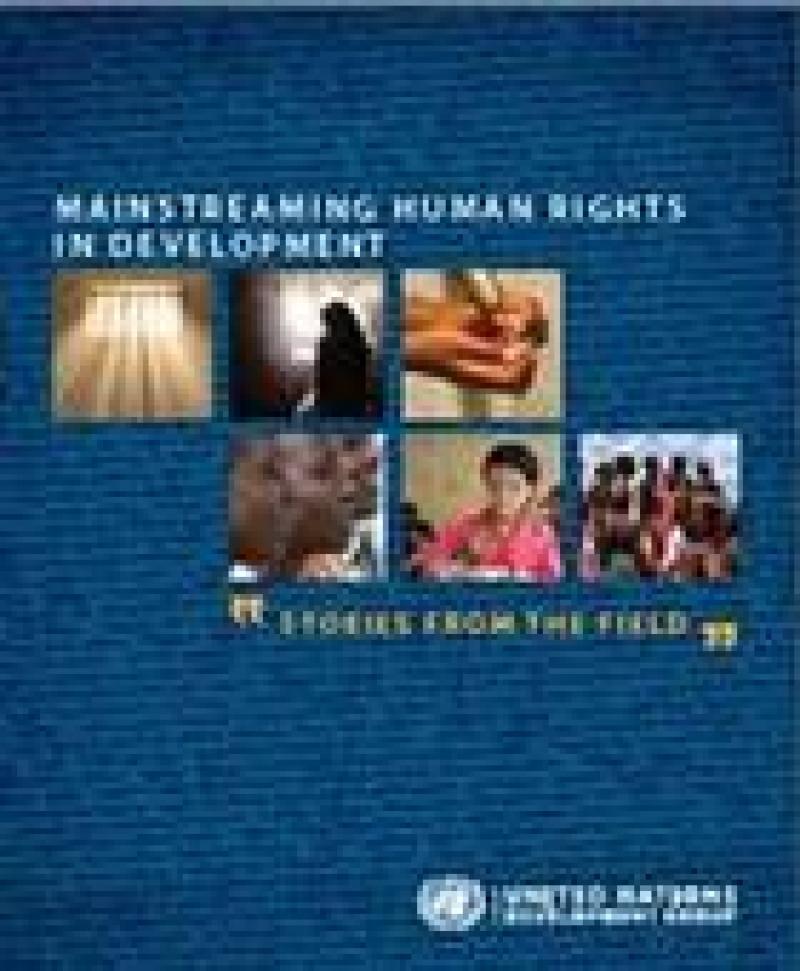

New York - The new publication: Mainstreaming Human Rights in Development “Stories from the field”, was recently launched. It was developed under the auspices of the UNDG-Human Rights Mainstreaming Mechanism (UNDG-HRM). The publication can be accessed on the UNDG HRM Fund GATEWAY page here and on the UN practitioners’ portal on Human Rights Based Approaches to programming here.
The new publication: Mainstreaming Human Rights in Development “Stories from the field”, was recently launched. It was developed under the auspices of the UNDG-Human Rights Mainstreaming Mechanism (UNDG-HRM). The publication can be accessed on the UNDG HRM Fund GATEWAY page here and on the UN practitioners’ portal on Human Rights Based Approaches to programming here.
This case study publication offers concrete examples of how human rights have been mainstreamed in practice and the value that human rights mainstreaming brings to development. It offers a snapshot of UN country teams (UNCTs’) efforts in integrating human rights into development that have yielded positive results in such diverse areas as prison reform, addressing discrimination, and integrating human rights in local water and sanitation development planning. It highlights the critical role that UNCTs play in supporting efforts by national actors to integrate human rights into national development programmes and policies, drawing on the UN’s convening power, normative role and impartiality.
The case studies were selected following a call by the UNDG-HRM on HuriTALK and Coordination Practice Network (CPN) which resulted in 30 submissions from across the UN system of which 6 were selected by the UNDG-HRM’s case study Peer Review Group (PRG), led by DOCO and consisting of UNICEF, OHCHR, UNDP, ILO and UNFPA. The case studies were drafted with the input of the respective UN focal points and Resident Coordinators in the countries selected, as well as government and civil society counterparts.